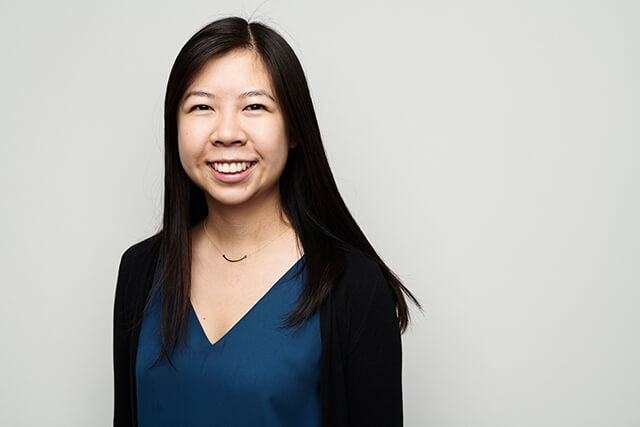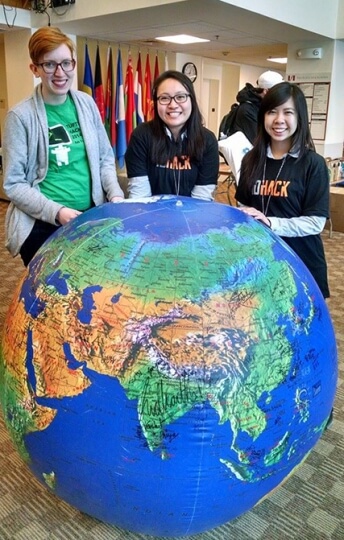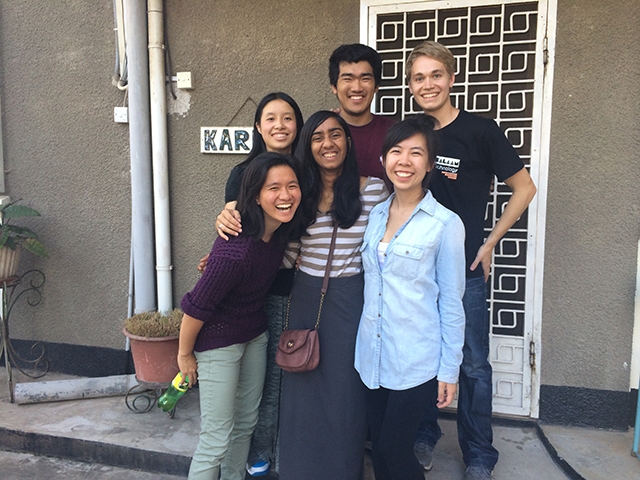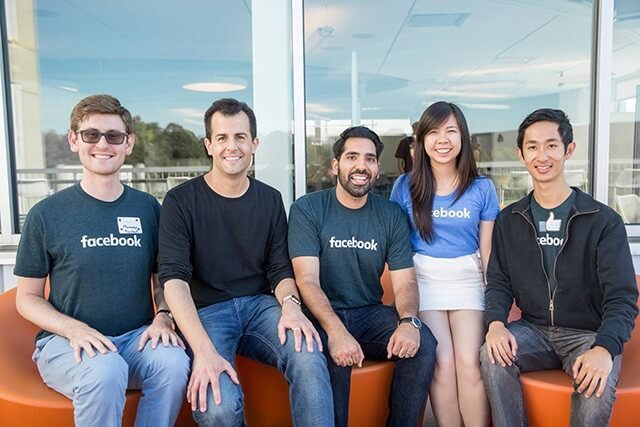As an engineering manager at Nava, Alisa Nguyen, A.B. '15, is working with the Department of Veterans Affairs on a web application to help VA employees process benefits for veterans. (Photo provided by Alisa Nguyen)
A homework assignment for her high school computer science class tasked Alisa Nguyen with writing an essay about how she might apply her computational skills in the future. While working on the essay, she learned about the field of information and communication technology for development, which focuses on applying tech to enable change in developing countries.
For Nguyen, that discovery was a game-changer—computer science was no longer just an interesting topic, it became a vehicle for her to make a positive impact for underserved populations.
Following that newfound passion, she chose to concentrate in computer science at the Harvard John A. Paulson School of Engineering and Applied Sciences.
Nguyen enjoyed courses like Introduction to Computer Science (CS50), which gave her the opportunity to build a phone app and gain valuable experience as a teaching fellow in future years. But she lamented that many of her peers were too focused on developing flashy products for big tech companies.
So she co-founded the student organization Developers for Development (D4D), with the goal of showing computer science students they could make an impact by working for small nonprofits or applying their skills to meaningful projects in developing countries.
Nguyen (far right) at the Developers for Development ID Hack in 2015. (Photo provided by Alisa Nguyen)
“I had always wanted to do something that made a difference in real people’s lives, rather than just making money or building something cool and fun,” she said. “I had a lot of fun in CS50, but I just wanted to make sure these nonprofits and nontraditional career paths weren’t overlooked by the high-caliber students at Harvard.”
With D4D, Nguyen found the ideal way to use her skills to make a difference.
She and D4D co-founders Joy Ming, A.B. ’15, and Victoria Gu, A.B. ’15, launched an international development-focused hackathon, IDHack, in 2013 in partnership with MIT’s Global Poverty Initiative, to inspire students to apply their skills to help people in developing countries.
And in 2014, Nguyen co-directed a trip with five peers to Tanzania to help the Ifakara Health Institute convert a paper-based process of collecting medical information from remote villages into a mobile phone, tablet, and computer based process.
“It was really cool to build something from scratch that could help solve a real need,” she said. “My biggest takeaway from that experience was that even if you have a good idea, people matter the most. Understanding who the users are, what their needs are, and working in partnership with them is the way to go, rather than developing something and giving it to them.”
Nguyen applied those lessons as an intern on the Internet.org team at Facebook, where she and her colleagues worked to bring internet connectivity to unconnected regions in Africa, South America, and Southeast Asia.
Since many people in developing countries lack access to high-end smart phones, the team faced many challenges to rework the technology for smaller screen sizes and strict limits on data and image resolutions.
Nguyen (bottom right) with the Harvard D4D Tech in the World Team in Tanzania. (Photo provided by Alisa Nguyen)
Keen for more opportunities to use technology to make a positive impact on people’s lives, she joined Facebook full-time after graduation. On the company’s civic engagement team, she built tech products to help citizens connect with their governments.
She developed election features, including a notification to help people connect with their new representatives after the 2016 U.S. election, 2018 U.S. mid-term elections, and a number of international elections.
Nguyen also worked on "everyday democracy" features—little nudges and reminders that democracy doesn't start and end on election day, and that there are myriad ways for people to engage civically every day. This included a badge users could sign up for to let their government representatives know they are a constituent, and a webpage called Town Hall, a one-stop shop to look up government services and representatives by address and contact them with a single click.
“It was really cool to see the scope of the impact you could have at Facebook. Millions of people were interacting with the features we were building,” she said. “But after surviving the 2016 election aftermath at Facebook and observing the increased research and investment into misinformation and fake news (especially its effects and the mitigation my team was putting in place against election interference), I became more cynical about continuing a career in big tech and decided to try something new, closer to my original interests of public service.”
So Nguyen joined Nava, which is focused on developing tech products that improve government services.
As an engineering manager, she is working with the Department of Veterans Affairs on a web application to help VA employees process benefits for veterans. The application will replace a system that has been used since the 1980s, and will streamline a process that often gets so bogged down that veterans can wait years to receive benefits.
Nguyen representing Facebook at CS50 Puzzle Day in 2015. (Photo provided by Alisa Nguyen)
Much of the work she and her team are doing involves digitizing government paperwork to reduce data inaccuracy and increase processing speed for the veteran benefits appeal process, and creating manual forms that would automatically verify information entered by employees.
“Some new technology that we hope to adopt more is optical character recognition tools and natural language processing to automatically process the paperwork rather than having humans do the data entry and categorization of forms,” she said. “This is still ongoing, and we are constantly looking for ways technology can be adapted to improve the existing inefficient processes.”
The biggest challenge she faces is educating VA employees about the new application, and helping them to see how it can improve their workflows. As an engineering manager, Nguyen is no longer coding day-to-day, but rather oversees a team of 20 engineers, which requires her to think more strategically.
“There are days when it gets really frustrating, with all the bureaucratic roadblocks we have to jump over to get things done, but at the end of the day, being able to see the impact we have on veterans—how we’re able to improve real people’s lives—that’s when I remember why we do this work,” she said.
Press Contact
Adam Zewe | 617-496-5878 | azewe@seas.harvard.edu



